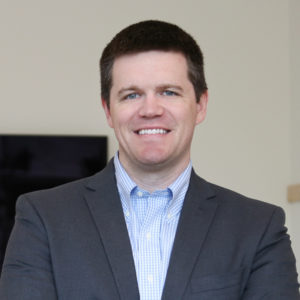 |
Dr. Kevin McHugh is an Assistant Professor and CPRIT Scholar in Cancer Research in the Department of Bioengineering at Rice University whose work has been featured in journals such as Science, Science Translational Materials, Advanced Materials, and PNAS. Dr. McHugh received his B.S. in biomedical engineering from Case Western Reserve University in 2009 and Ph.D. in Biomedical Engineering from Boston University in 2014 where his Ph.D. work focused on developing tissue engineering scaffolds for dry age-related macular degeneration. He then joined Dr. Robert Langer’s Laboratory at the Massachusetts Institute of Technology as a Ruth L. Kirschstein Postdoctoral Fellow where he developed vaccine delivery systems with an emphasis on applications in low-resource environments. At Rice, Dr. McHugh’s lab combines customized biodegradable materials and cutting-edge fabrication techniques to create novel drug delivery systems that overcome the limitations of current vaccine and drug formulations.
Find out more about Kevin’s lab here: http://mchughlab.rice.edu/team/ You can follow Kevin on Twitter @kjmchugh1 |
Read Kevin’s Emerging Investigator article, ‘Multidomain Peptide Hydrogel Adjuvants Elicit Strong Bias Towards Humoral Immunity’
Check out our interview with Kevin below:
1. How do you feel about Biomaterials Science as a place to publish research on this topic?
Biomaterials Science consistently publishes high-quality and interesting work in the field of self-assembled drug delivery systems and immunoengineering, so it was an obvious choice for where to publish our research. The journal has been quick to adapt to the emerging area of immune modulation and reflects the great interest in both understanding and controlling the interaction between biomaterials and the immune system. In this paper, we sought to share our delivery platform as a tool to direct and modulate this interaction. We hope that our contribution to the field can be beneficial to fellow readers of Biomaterials Science just as we have benefited from the work of others who have published in the journal.
2. What aspect of your work are you most excited about at the moment and what do you find most challenging about your research?
The most exciting aspect of our work is the ability to tune the immune response by changing the sequence and chemical functionality of multidomain peptide hydrogels. These synthetic peptides are biocompatible and extremely modular, which makes them an excellent platform for immune modulation. In this recent study, we show that these materials can act as adjuvants to generate antigen-specific humoral immunity without a strong cellular immune response. In the future, we are excited to explore additional peptide modifications that can direct the adaptive immune response to preferentially evoke the cellular immune response or even a tolerogenic immune response. The most challenging aspect of our work is understanding the underlying mechanisms behind this multidomain peptide-mediated immunomodulation. Many groups working on self-assembling peptides are investigating how the body recognizes and reacts to these materials and although there has been some progress, there is still much to understand.
3. In your opinion, what are the most important questions to be asked/answered in this field of research?
One of the most important questions that we, as a field, need to answer is “what are the characteristics of peptide-based biomaterials that influence the immune response?” Once we develop a generalizable understanding of the structure-function relationships that influence the immune system, we will be able to rationally design materials that direct the immune response in an application-specific manner with high precision. Tools like alpha-fold have made great strides towards this goal, yet more work is needed to understand how the body recognizes and interacts with different peptide self-assemblies based on sequence and secondary structure.
4. Can you share one piece of career-related advice or wisdom with other early career scientists?
The most important piece of advice I can share with early-career scientists is to make sure that you pursue your research in a way that is sustainable for you. If you are working so hard that burnout is on the horizon, definitely dial it back. In the long run, it is not helpful to anyone—least of all you. The “for you” part of that advice is especially important. Try not to compare yourself to others. There are many reasons why someone else might maintain a different work schedule than you, so just focus on doing the best that you can, taking into account your personal goals, priorities, and other obligations. Also, putting in hours just for the sake of being in the lab is not helpful. Instead, plan ahead, work efficiently, and take time off when you need it.










